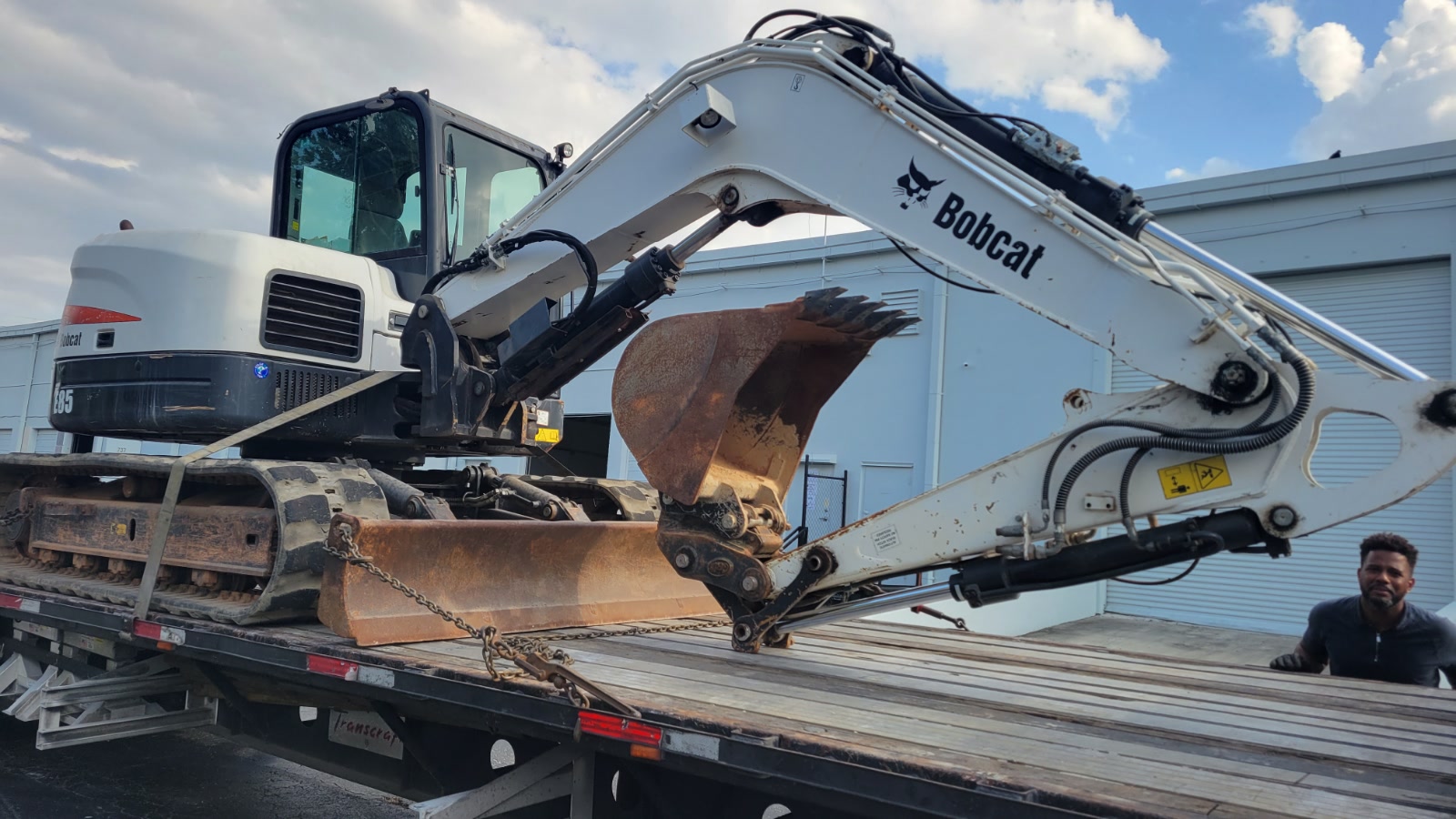West Virginia Truck Weight Limits
Freedom Heavy Haul can offer expedited Pickup and Delivery for any size shipment anywhere in the USA. Contact us today for No Hassle, No Pressure Pricing.
Truck weight limits in West Virginia are critical components of road safety and infrastructure maintenance, especially for heavy haul transport in West Virginia. These regulations ensure the safe operation of heavy vehicles on the state’s roadways, protecting both the drivers and the structural integrity of the roads. Understanding and adhering to these limits is not only a matter of legal compliance but also a responsibility towards public safety and the preservation of transportation infrastructure. In this article, you will learn about West Virginia Truck Weight Limits and the weight regulations.
West Virginia Truck Weight Limits and Regulations
The regulations surrounding truck weights in West Virginia are designed to balance the needs of the trucking industry with the preservation of road safety and infrastructure preservation, which is crucial for West Virginia heavy haul transport. These rules are crucial in mitigating road wear and tear and in preventing accidents related to overloading. Compliance with these standards is enforced through a combination of state monitoring and industry adherence to legal requirements.
Standard Weight Restrictions
West Virginia imposes specific weight restrictions for trucks to navigate its roads safely. These limits are set based on the type of roadway and the vehicle’s configuration. They play a pivotal role in maintaining road conditions and ensuring safety.

Maximum Gross Vehicle Weight
The state sets a maximum gross vehicle weight limit of 80,000 pounds for trucks operating on most highways, ensuring that heavy haul operations in West Virginia remain within legal limits. This limit is in line with federal regulations and is designed to prevent damage to road surfaces and structures like bridges. It also helps in managing traffic flow and reducing the risk of accidents associated with oversized vehicles.
Per-Axle Weight Limits
West Virginia also enforces per-axle weight limits. The standard limit is 20,000 pounds per axle. This regulation helps distribute the vehicle’s weight evenly, reducing the risk of road damage and increasing vehicle stability.
Detailed Vehicle Configuration Limits
Different vehicle configurations have specific weight limits to ensure their safe operation on West Virginia’s roads.
Single Unit Vehicles
For single unit vehicles, the state allows varying weight limits based on the number of axles. A single unit tandem with three axles is permitted up to 60,000 pounds, whereas a tridem with four axles can carry up to 70,000 pounds. The maximum for a quadrum, with five axles, is 73,000 pounds. These configurations take into account the distribution of weight and its impact on road surfaces.

Combination Vehicles
Combination vehicles like tractor-semitrailers are subject to weight limits based on their axle count. Both 5-axle and 6-axle combinations are capped at 80,000 pounds, balancing the need for cargo capacity with safety considerations.
Permits for Oversized and Overweight Loads
In instances where transportation requirements exceed standard weight limits, West Virginia offers a system for obtaining special permits. These permits are crucial for maintaining road safety while accommodating the transportation of oversized or heavy loads.
Regulations for Exceeding Standard Limits
Permits are mandatory for any vehicle exceeding the state’s standard weight limits. This regulation ensures that any vehicle operating outside the usual parameters is doing so under strict guidelines to minimize risks to infrastructure and public safety.
Application Process for Special Permits
The permit application process involves a detailed assessment of the vehicle and its intended route. The state evaluates the potential impact on roadways and may impose specific conditions or route restrictions to mitigate risks. This process is essential for maintaining the balance between transportation needs and infrastructure preservation.
Route-Specific Regulations
West Virginia’s weight limits for trucks also vary depending on the type of route. These variations are in place to protect smaller roadways and communities from the impact of heavy traffic.
Designated Routes and Weight Limits
On designated routes, which typically include major highways and interstates, the standard weight limits apply. These routes are engineered to handle heavier traffic and larger loads, making them suitable for standard and some oversized vehicles.
Non-Designated Routes and Restrictions
For non-designated routes, which often include local roads and smaller highways, lower weight limits are enforced. These limits, often set at 65,000 pounds for gross weight, reflect the reduced capacity of these roads to handle heavy traffic and prevent undue wear and tear.
Enforcement and Penalties
The enforcement of truck weight limits in West Virginia is a critical aspect of ensuring compliance. The state employs various methods to monitor and enforce these regulations effectively.
Monitoring and Compliance
Weigh stations and routine inspections are primary tools for monitoring compliance. Trucks are regularly checked for adherence to weight limits, and any discrepancies are addressed promptly. This enforcement ensures that all vehicles on the road are operating within the legal weight parameters.

Consequences of Non-Compliance
Violating weight limits can result in significant penalties, including fines, impoundment of the vehicle, or even legal charges in severe cases. These penalties underscore the importance of adhering to weight regulations for the safety of all road users and the preservation of infrastructure.
Additional Considerations
Beyond the standard regulations, there are additional factors that truck operators in West Virginia must consider.
Seasonal Weight Restrictions
During certain times of the year, such as periods of thaw or heavy rainfall, West Virginia may impose temporary weight restrictions. These seasonal adjustments account for the increased vulnerability of roads during these times and help prevent damage.
Impact on Infrastructure and Safety
The weight limits not only protect the physical infrastructure of roads and bridges but also play a crucial role in ensuring overall road safety. Overloading trucks can lead to increased wear and tear on roads and higher risks of accidents, affecting all road users.
Conclusion
In conclusion, the West Virginia truck weight limits are a fundamental aspect of road safety and infrastructure maintenance, especially for those involved in heavy haul transport in West Virginia. Adherence to these regulations is essential for the safe and efficient operation of commercial vehicles within the state. By understanding and complying with these rules, truck operators contribute to safer roads and a more sustainable transportation infrastructure.







